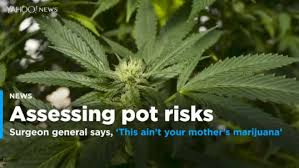Wishing one could fly must be a fantasy for every child — I don’t know. Maybe only for boys. My fantasy was to be like Superman. My mother safety-pinned a towel around my neck, and off I would fly around the house, faster than a locomotive, and able to leap tall buildings with ease. Of course, by suppertime, I had to wash my hands, sit down at the family table, and return to my Clark Kent life.
The Greeks told stories about this kind of fantasy, only the stories were meant for adults. The myth of Icarus was about a young man who was given wings made of wax and feathers. Icarus was warned that he could fly at will and as far and as high as he wished, but to be careful not to go too close to the sun, else his wings would melt. This is akin to placing a child in the middle of a chocolate factory and telling the child not to eat too much. Good luck!
We have modern day stories of Icarus: men and women who fly too close to the sun, crashing and burning for all to see. They’re like modern day morality plays, reminders of what happens when we get carried away with ambition, or swallowed up by sexual desire, or lost in our greed or our grasping for power, success…, you name it. We’ve seen it all. And sometimes, we’ve even been there ourselves. We know what it’s like to have to rebuild our lives from the carnage and wreckage we’ve incurred. Friends of mine in recovery programs tell me that the day they hit bottom was the worst day of their lives,…and the best. The beginning of sobriety and the birth of hope.
The most common form of the myth of Icarus I see in my private practice are those corporate employees who have been given the golden handcuffs: outsized salaries with bonuses and perks, paired with otherworldly expectations that amount to three words….Produce. Produce. Produce!
When human beings imagine themselves to be human doings, Icarus is being constellated in those persons’ souls. A slim portion of employees on the bell-curve of success — the ultra Type A’s of the world — can actually do this, apparently, without much damage. The rest of us on the upslope and downslope of the curve have to really struggle to keep up the pace, and the price is usually high: broken relationships, families that are starved for the heartfelt presence of an absent parent, all forms of addiction and depression and anxiety-disorders, and any number of demons related to threats to one’s physical and spiritual health. Our inner lives, home to the values inherent in being a human being, becomes relatively forgotten or rationalized in comparison with our outer concerns and values related to treating ourselves as if we are robots or machines.
Carl Jung, the famous psychologist who wrote MAN’S SEARCH FOR A SOUL, wrote that “…when an inner situation is not made conscious, it happens outside, as fate.” We see this most glaringly, not just in individual lives, but in the larger culture as well. When there are more guns in America than people, for instance, Icarus has flown too high, with disasters happening with tragic regularity. When corporate and individual profit is more precious than care for the earth, Icarus is close to a having a meltdown. We, as a nation, seal our fate, when we ignore the values of protecting our children above all, and when we create economic and environmental debts that generations to come will most certainly have to pay, and painfully so.
It’s not all so dire as it might seem, though. The Greeks told stories like the myth of Icarus for a reason: to remind us of who we are and what we are capable of creating, with enough awareness and courage. It takes heroic courage to make one’s family a priority over productivity and profit. It takes heroic courage, to strive for balance in one’s life, vocationally and spiritually. It take heroic, Icarus-like courage, to use God’s gifts for improving the world, rather than just dominating it or selling our souls for the sake of political and economic power. Falling to earth doesn’t have to be the last word. It can be the beginning of reclaiming our souls and the soulfulness of the world.

